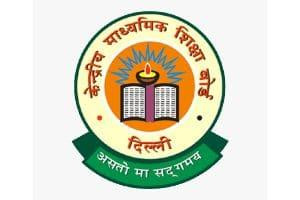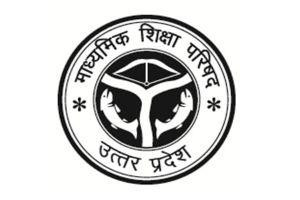
Teaching exams, such as Teaching Eligibility Tests (TET), are conducted to ensure that candidates aspiring to become teachers in government schools or educational institutions meet the required standards of knowledge, aptitude, and skills necessary to be effective educators. Here are some reasons why teaching exams are important:
- Ensuring quality education: Teaching exams are designed to ensure that only qualified and competent individuals are allowed to become teachers. They assess candidates' knowledge of subjects, teaching methodologies, child development and psychology, and other relevant areas, ensuring that teachers possess the necessary knowledge and skills to provide quality education to students.
- Establishing professional standards: Teaching exams help establish professional standards for the teaching profession. They set benchmarks for the minimum qualifications and skills required for individuals to be eligible for teaching positions in schools or educational institutions, thus raising the overall standards of the teaching profession.
- Improving student outcomes: Qualified and skilled teachers are crucial for improving student outcomes. Teaching exams help in identifying candidates who have the aptitude and competence to effectively engage with students, plan and deliver lessons, and create a conducive learning environment. This in turn can lead to better student performance and outcomes.
- Enhancing teacher professionalism: Teaching exams promote a sense of professionalism among teachers. By setting standards for entry into the teaching profession, teaching exams emphasize the importance of continuous learning, self-improvement, and adherence to professional ethics and conduct.
- Ensuring regulatory compliance: Teaching exams are often a mandatory requirement for teachers to comply with regulatory or legal provisions in many countries. Clearing the TET or similar exams may be a prerequisite for obtaining a teaching license, certification, or registration, as required by the relevant educational authorities.
- Enhancing career opportunities: Clearing teaching exams can open up a wider range of career opportunities for aspiring teachers. Qualified candidates who have cleared the TET or similar exams may be eligible to apply for government teaching positions, which often offer better job security, benefits, and career progression opportunities.
In summary, teaching exams play a crucial role in ensuring the quality of education, establishing professional standards, improving student outcomes, promoting teacher professionalism, ensuring regulatory compliance, and enhancing career opportunities for aspiring teachers.
Teaching Exam Syllabus
The syllabus for Teaching Eligibility Tests (TET) or other teaching exams may vary depending on the country, state, or educational board conducting the exam. However, in general, the syllabus for teaching exams typically covers the following areas:
- Child Development and Pedagogy: This section assesses the candidates' understanding of child development, learning theories, and pedagogical concepts. Topics may include stages of child development, cognitive development, social and emotional development, learning theories, motivation, and pedagogical approaches and strategies.
- Language Proficiency: This section assesses the candidates' proficiency in the language(s) in which they will be teaching. It may include questions on grammar, vocabulary, comprehension, and language teaching methodologies.
- Subject-Specific Knowledge: This section assesses the candidates' knowledge of the subjects they will be teaching, such as mathematics, science, social studies, English, etc. The depth and breadth of the subject-specific knowledge may vary depending on the level of teaching (e.g., primary, middle, secondary) and the subject being assessed.
- Teaching Methodologies: This section assesses the candidates' understanding of various teaching methodologies and strategies, including lesson planning, instructional strategies, classroom management, assessment and evaluation, and inclusive education practices.
- Educational Psychology: This section assesses the candidates' understanding of educational psychology concepts, including theories of learning, motivation, intelligence, individual differences, and assessment and evaluation.
- Current Affairs and General Knowledge: This section assesses the candidates' knowledge of current events, general knowledge, and awareness of the world around them, including topics such as history, geography, politics, economics, and social issues.
- Pedagogy of the Language concerned: This section assesses the candidates' understanding of language-specific pedagogical concepts, methods, and strategies for teaching the language effectively, including aspects such as language skills development, language teaching techniques, and language learning materials.
It's important to note that the specific syllabus and weightage of each section may vary depending on the exam conducting authority and the level of teaching (e.g., primary, middle, secondary) for which the exam is being conducted. It's recommended to refer to the official exam notification or website for the most up-to-date and accurate syllabus for the specific teaching exam you are preparing for.
Types of Teaching Exams
CTET
CTET stands for Central Teacher Eligibility Test, which is a national level eligibility exam conducted by the Central Board of Secondary Education (CBSE) in India. CTET is conducted twice a year to assess the eligibility of candidates for teaching positions in central government schools (Kendriya Vidyalayas) and other schools affiliated with the Central Board of Secondary Education (CBSE) across India. CTET is one of the most popular and widely recognized teacher eligibility exams in India.
CTET exam has two papers:
Paper-I: This is for candidates who wish to become teachers for classes I to V (primary level).
Paper-II: This is for candidates who wish to become teachers for classes VI to VIII (upper primary level).
Candidates can choose to appear for either Paper-I or Paper-II or both, depending on their desired level of teaching. The CTET exam is conducted in offline mode (pen-and-paper-based) and consists of multiple-choice questions (MCQs).
The syllabus for CTET includes Child Development and Pedagogy, Language I (compulsory), Language II (compulsory), Mathematics and Environmental Studies (for Paper-I), and Child Development and Pedagogy, Language I (compulsory), Language II (compulsory), Mathematics and Science (for Mathematics and Science teacher) or Social Studies/Social Science (for Social Studies/Social Science teacher) (for Paper-II).
CTET scores are valid for a period of seven years from the date of declaration of results. Candidates who qualify CTET become eligible to apply for teaching positions in central government schools and other CBSE-affiliated schools across India.
CTET is an important exam for aspiring teachers in India and is seen as a benchmark for ensuring quality teaching standards in the country. It's important for candidates to thoroughly prepare for the CTET exam by understanding the syllabus, exam pattern, and practicing previous years' question papers to increase their chances of success.
Read more about CTET
CSIR UGC NET
CSIR UGC NET (Council of Scientific and Industrial Research - University Grants Commission National Eligibility Test) is a national level eligibility exam conducted by the National Testing Agency (NTA) on behalf of the Council of Scientific and Industrial Research (CSIR) and University Grants Commission (UGC) in India. CSIR UGC NET is specifically conducted for determining the eligibility of candidates for Junior Research Fellowship (JRF) and Lectureship in the field of Science and Technology.
CSIR UGC NET exam is conducted twice a year in June and December, and it consists of a single paper with multiple-choice questions (MCQs). The exam is conducted in online mode (computer-based test) and includes questions from the following subjects:
- Chemical Sciences
- Earth Sciences
- Life Sciences
- Mathematical Sciences
- Physical Sciences
Candidates can choose their subject of specialization and appear for the exam accordingly.
To be eligible for CSIR UGC NET, candidates must have a Master's degree in the relevant subject with a minimum of 55% marks (50% for reserved category candidates). Candidates who qualify CSIR UGC NET are eligible for Junior Research Fellowship (JRF) for a maximum period of five years, during which they can pursue research in the field of Science and Technology. Candidates who do not qualify for JRF but meet the eligibility criteria are awarded Lectureship, which makes them eligible to apply for teaching positions in universities and colleges across India.
CSIR UGC NET is a highly competitive exam, and candidates are advised to thoroughly prepare for the exam by understanding the syllabus, exam pattern, and practicing previous years' question papers. It's also important to stay updated with the latest developments in the field of Science and Technology to perform well in the exam.
Read more about UGC NET
HPTET
HPTET stands for Himachal Pradesh Teacher Eligibility Test, which is a state-level eligibility exam conducted by the Himachal Pradesh Board of School Education (HPBOSE) in India. HPTET is conducted to assess the eligibility of candidates for teaching positions in various schools of Himachal Pradesh.
HPTET exam is conducted for multiple levels and subjects as follows:
- TGT (Arts) - for candidates aspiring to become Trained Graduate Teachers (TGT) in Arts subjects like English, Hindi, Social Studies, Sanskrit, and Urdu.
- TGT (Non-Medical) - for candidates aspiring to become Trained Graduate Teachers (TGT) in Non-Medical subjects like Mathematics, Physics, and Chemistry.
- TGT (Medical) - for candidates aspiring to become Trained Graduate Teachers (TGT) in Medical subjects like Biology and Botany.
- Shastri - for candidates aspiring to become Shastri (language teacher) in Sanskrit.
- Language Teacher - for candidates aspiring to become Language Teachers in Hindi and Urdu.
- JBT - for candidates aspiring to become Junior Basic Teachers (JBT) in primary schools.
- Punjabi - for candidates aspiring to become Punjabi language teachers.
- Urdu - for candidates aspiring to become Urdu language teachers.
The HPTET exam is conducted in offline mode (pen-and-paper-based) and consists of multiple-choice questions (MCQs). The syllabus for HPTET includes subjects like Child Development and Pedagogy, Language I (compulsory), Language II (compulsory), Mathematics, Environmental Studies, Social Studies, Science, and other subjects depending on the level and subject chosen by the candidate.
Candidates who qualify HPTET become eligible to apply for teaching positions in schools of Himachal Pradesh. HPTET is an important exam for aspiring teachers in Himachal Pradesh, and candidates are advised to thoroughly prepare for the exam by understanding the syllabus, exam pattern, and practicing previous years' question papers to increase their chances of success.
Read more about HPTET
UPTET
UPTET stands for Uttar Pradesh Teacher Eligibility Test, which is a state-level eligibility exam conducted by the Uttar Pradesh Basic Education Board (UPBEB) in India. UPTET is conducted to assess the eligibility of candidates for teaching positions in various schools of Uttar Pradesh.
UPTET exam is conducted for two levels as follows:
Primary Level (Class I-V) - for candidates aspiring to become teachers for classes I to V.
Upper Primary Level (Class VI-VIII) - for candidates aspiring to become teachers for classes VI to VIII.
The UPTET exam is conducted in offline mode (pen-and-paper-based) and consists of multiple-choice questions (MCQs). The syllabus for UPTET includes subjects like Child Development and Pedagogy, Language I (compulsory), Language II (compulsory), Mathematics, Environmental Studies, Social Studies, Science, and other subjects depending on the level chosen by the candidate.
Candidates who qualify UPTET become eligible to apply for teaching positions in schools of Uttar Pradesh. UPTET is an important exam for aspiring teachers in Uttar Pradesh, and candidates are advised to thoroughly prepare for the exam by understanding the syllabus, exam pattern, and practicing previous years' question papers to increase their chances of success.
It's worth noting that qualifying UPTET does not guarantee a teaching job in Uttar Pradesh, but it is a mandatory eligibility criteria for applying to the vacancies of teachers in various government, aided, and private schools in the state. Candidates are required to fulfill other eligibility criteria, such as educational qualifications, age, and experience, as per the respective school or organization's requirements to be considered for selection as a teacher.
Read more about UPTET
NVS Recruitment
NVS recruitment refers to the process of hiring teachers and other staff for various posts in the Navodaya Vidyalaya Samiti (NVS), an autonomous organization under the Ministry of Education, Government of India. NVS operates a network of co-educational residential schools known as Jawahar Navodaya Vidyalayas (JNVs) across different states and union territories in India.
NVS conducts recruitment exams to fill vacancies for various teaching and non-teaching posts in JNVs. Some of the common posts for which NVS conducts recruitment exams are:
- Post Graduate Teachers (PGTs) - for subjects like English, Hindi, Mathematics, Physics, Chemistry, Biology, History, Geography, Economics, Commerce, and Computer Science.
- Trained Graduate Teachers (TGTs) - for subjects like English, Hindi, Mathematics, Science, Social Studies, and Sanskrit.
- Miscellaneous Category Teachers - for subjects like Music, Art, PET (Physical Education Teacher), and Librarian.
- Lower Division Clerk (LDC) - for clerical and administrative work.
- Female Staff Nurse - for providing healthcare services to students and staff.
- Catering Assistant - for managing catering services in JNVs.
- Legal Assistant - for providing legal support and assistance.
The recruitment exams for NVS typically consist of written tests, skill tests, and/or interviews, depending on the post. The syllabus for the exams is based on the relevant subject knowledge, general awareness, reasoning ability, and teaching aptitude for teaching posts, and relevant skills for non-teaching posts.
Candidates who qualify the NVS recruitment exams and meet the eligibility criteria are appointed in the respective JNVs as per the vacancies available. NVS recruitment is a competitive process, and candidates are advised to thoroughly prepare for the exams by understanding the syllabus, exam pattern, and practicing previous years' question papers to increase their chances of success.
Read more about NVS Recruitment
Teaching Exam Preparation Tips
Preparing for teaching exams requires diligent effort and strategic planning. Here are some tips to help you effectively prepare for teaching exams:
- Understand the Exam Syllabus: Carefully go through the syllabus of the teaching exam you are preparing for. Understand the topics and sub-topics that are included in the syllabus. Make a study plan accordingly, allocating sufficient time to cover each topic thoroughly.
- Get Familiar with Exam Pattern: Understand the exam pattern, including the types of questions, marking scheme, duration of the exam, etc. This will help you in developing an effective strategy to attempt the exam.
- Refer to Reliable Study Material: Use standard and reliable study materials, such as textbooks, reference books, online resources, and previous years' question papers to prepare for the exam. Avoid relying solely on one source and cross-verify information from multiple sources.
- Practice with Mock Tests: Take mock tests and practice previous years' question papers to get a feel of the actual exam. This will help you in improving your time management skills, identifying weak areas, and gaining confidence.
- Make Notes: While studying, make concise notes of important topics, formulas, and concepts. This will help you in quick revision during the last days before the exam.
- Focus on Pedagogy: If you are preparing for a teaching exam, pay special attention to topics related to child development and pedagogy, teaching methodologies, educational psychology, and assessment and evaluation. These topics are crucial for understanding the principles and practices of effective teaching.
- Follow a Healthy Routine: Maintain a healthy lifestyle during exam preparation. Get adequate sleep, eat well, and exercise regularly to keep yourself physically and mentally fit. Avoid stress and anxiety by taking breaks, practicing relaxation techniques, and seeking support from family and friends.
- Stay Updated with Current Affairs: Stay updated with the latest news and current affairs, especially in the field of education. Many teaching exams include questions related to current educational policies, initiatives, and trends.
- Revise Regularly: Regular revision is essential for retaining information and reinforcing concepts. Set aside time for regular revision of topics, formulas, and concepts that you have studied.
- Stay Positive and Confident: Maintain a positive attitude and believe in your abilities. Stay confident and focused during the exam. Avoid last-minute cramming and trust your preparation.
Remember, effective preparation, consistent effort, and dedication are the key to success in teaching exams. Good luck!
































